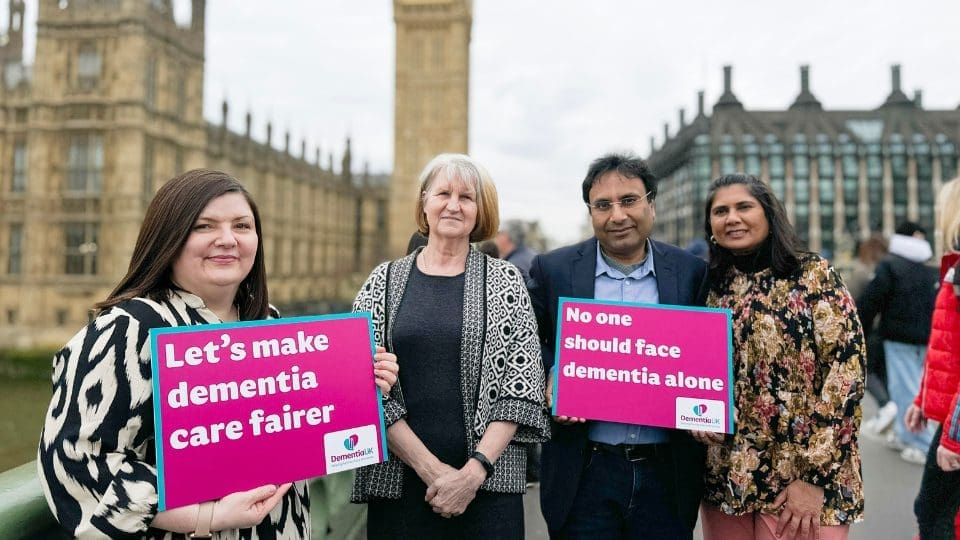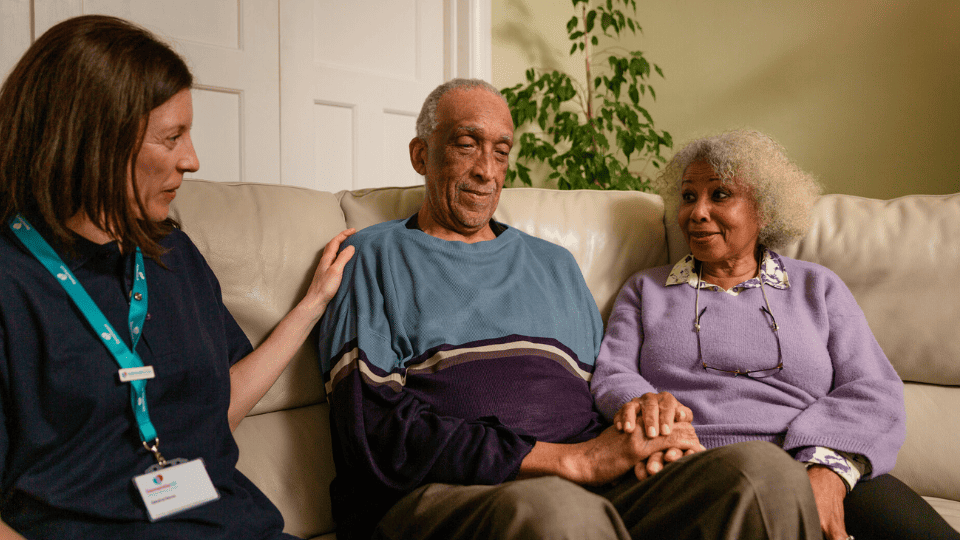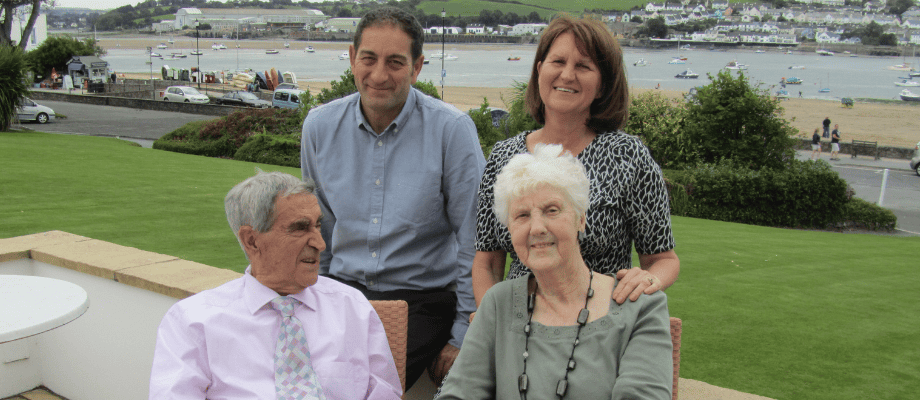
Email your MP
Contact your MP today and ask them to meet with Dementia UK. Let’s make sure every MP understands the urgent need to transform dementia care.

Together, we can help more people with dementia get the care they need
NHS continuing healthcare funding (CHC) can be a lifeline for people in England with long-term and complex health needs, many of whom are facing soaring care costs. It covers costs such as home carers or care home fees.
But families affected by dementia in England face significant obstacles in accessing vital CHC funding and many are missing out because the assessment process is flawed and does not recognise their unique and challenging needs.
It doesn’t have to be this way. We need the Government to urgently review the process so that more people with dementia can access crucial funding when they need it.
Mahersh opens up on the struggles he and wife Nishma have faced in their attempts to secure CHC funding for his mother’s care.

Contact your MP today and ask them to meet with Dementia UK. Let’s make sure every MP understands the urgent need to transform dementia care.

Share your experience of the continuing healthcare funding process so that together, we can show politicians why and how it needs to be improved.
To get NHS continuing healthcare funding, people must apply and have their needs assessed.
Dementia is a complex, challenging and progressive condition that affects every individual differently. This means that expert guidance from a dementia specialist is essential throughout the assessment process to make sure that the needs of people with dementia are effectively considered.
However, this doesn’t routinely happen. People’s unique needs are often misunderstood, underestimated and incorrectly assessed – and unless the process is reformed, many families will miss out on the funding they urgently need.
We want NHS England to review the CHC process so that it better recognises the cognitive, behavioural and care needs of people living with dementia.
Find out more about what CHC is, whether you might be eligible and how to apply.
Right now, many people with dementia in England who may be eligible for NHS continuing healthcare funding are missing out. This can lead to increased – and often unmanageable – caring responsibilities for family members, and serious financial worries for those who are left to foot the cost of care themselves.
Families have told us that they feel frustrated and demoralised by a system that appears to work against them by failing to recognise the complex health needs of people with dementia.
According to new Ipsos UK research commissioned by Dementia UK, nearly a quarter of those surveyed (24%) whose friend or loved one had tried to access CHC funding disagreed that the system was fit for purpose – whether they had been successful or not. In addition, just 14% of those surveyed were aware of NHS CHC at all.*
This is unacceptable. Discover their stories below.

"I don’t think a lot of health and care professionals know enough about continuing healthcare."

“I felt angry, frustrated and stressed. I didn’t feel assessors understood the complexities of dementia”
We’re calling on the Government to urgently review the NHS continuing healthcare process so that it meets the needs of people with dementia. Here are three ways NHS England can make the system better:
Our Admiral Nurses can provide support and advocacy to families around the CHC process, both locally and via our Helpline and Clinics.
This can include:
We offer information and advice to family carers directly though the Admiral Nurse Dementia Helpline on 0800 888 6678 (Monday-Friday 9am-9pm, Saturday and Sunday 9am-5pm, every day except 25th December. You can also book an appointment with an Admiral Nurse through our virtual clinics.
* The research was carried out by Ipsos UK. Ipsos UK interviewed a representative quota sample of 3,275 adults aged 16-75 in England, Wales and Scotland using its online i:omnibus between 25th – 29th Aug 2023. The sample obtained is representative of the population with quotas on Age, Gender, Region and Working Status. The data has been weighted to the known offline population proportions for age, working status and social grade within gender, and region to reflect the adult population of England, Wales and Scotland.
In addition, sub-samples referred to as follows: